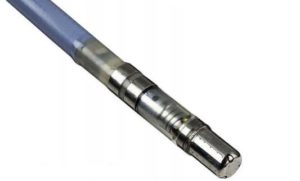
Biosense Webster has announced new findings from the Q-FFICIENCY study have been published in the Journal of Cardiovascular Electrophysiology, which the company says demonstrate improved control of atrial fibrillation (AF), relief of symptoms and overall quality of life, following treatment with the QDot Micro catheter.
Q-FFICIENCY evaluated the safety and 12-month efficacy of the novel QDot Micro catheter temperature-controlled, contact force-sensing, radiofrequency (RF) catheter in patients with paroxysmal AF.
Based on patient-reported outcomes, the study found a 99% and 93.1% improvement in control of AF and relief of AF symptoms, respectively, at 12-month follow-up compared to baseline, and 87.9% of patients experienced a meaningful clinical improvement in quality of life.
“These findings highlight the advantage of treatment with the QDot Micro Catheter in patients with paroxysmal AF, demonstrating that patients have fewer symptoms and a significant improvement in their quality of life along with a low incidence of cardioversion and hospitalisations following temperature-controlled RF ablation treatment,” said Ayman A Hussein (Cleveland Clinic, Cleveland, USA) and the publication’s corresponding author. “Paired with previously published Q-FFICIENCY study data showing that the unique design of the QDot Micro catheter enhanced efficiency and efficacy without compromising safety, the benefit of treatment with this state-of-the art tool is clear for both patients and physicians.”
The QDot Micro catheter is a next-generation RF ablation catheter that incorporates advanced, high-energy ablation, improved temperature monitoring, optimised irrigation, and higher signal resolution. In QMode+ setting, the catheter allows the delivery of very high-power, short-duration ablation—90 watts for up to four seconds, significantly improving ablation efficiency.
The catheter is fully integrated with the Carto 3 system, enabling efficient and consistent lesion creation with a simplified workflow and lower total procedure time.
Earlier this year, Biosense Webster announced the publication of the Q-FFICIENCY safety and 12-month efficacy data in JACC: Clinical Electrophysiology, which showed that the QDot Micro catheter delivered high clinical success with 86% of patients experiencing freedom from symptomatic recurrence while catheter-related primary adverse events remained low at 1.8%.









